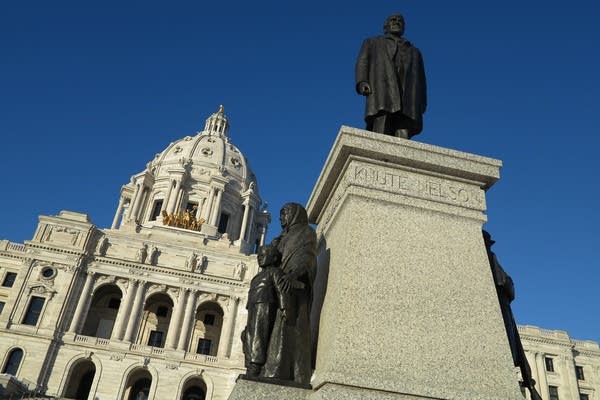Health insurance exchange, MinnesotaCare, Medicaid decisions due at Legislature
Go Deeper.
Create an account or log in to save stories.
Like this?
Thanks for liking this story! We have added it to a list of your favorite stories.

State lawmakers are under a tight deadline as they tackle a number of issues related to the federal health care overhaul, including passing legislation to set up a health insurance exchange, the fate of MinnesotaCare and an expansion of Medicaid.
The exchange will serve as the online gateway for more than a million Minnesotans to comparison shop for health insurance policies and enroll in government programs such as Medicaid.
Health insurance exchange legislation has faced a difficult couple of years at the state Capital, opposed by a Republican majority hostile to President Barack Obama's health care law. With Democrats now in power, such legislation should move along a smoother path.
Rep. Joe Atkins, DFL-Inver Grove Heights, chairman of the house commerce and consumer protection policy and finance committee, will co-author an exchange bill. Atkins says a Democratic majority, however, does not mean passing exchange legislation will be a breeze.
Turn Up Your Support
MPR News helps you turn down the noise and build shared understanding. Turn up your support for this public resource and keep trusted journalism accessible to all.
"Even among Democrats, we have quite disparate views of how health insurance and health care ought to work," Atkins said. "And moreover, I expect this to be bipartisan; I'm going to bend over backwards to involve my colleagues on both sides of the aisle."
State and federal deadlines require Gov. Mark Dayton to sign an exchange bill no later than March 31. But because lawmakers break for Passover and Easter the last week in March, they will have to have exchange legislation ready at least a week earlier. That leaves about 10 weeks to pass a bill that must answer thorny questions such as: who will govern the exchange's operations? How will the state fund it long-term? And will insurance brokers play a role on the exchange?
"It's going to take all the time we have," said Sen. Tony Lourey, a DFLer from Kerrick who will co-author the exchange legislation. Lourey expects to introduce an exchange bill within the first two weeks of the session.
"We're going to be open to the legislature's ideas and amending the bill as we go. It's not a 'take it or leave it' that we'll be introducing," Lourey said.
MINNESOTACARE'S FATE
In addition to the exchange, lawmakers will also consider a dizzyingly complex issue — whether to continue the MinnesotaCare program or choose a federal alternative. MinnesotaCare is a state-subsidized health plan that insures those under age 65 who earn too much to qualify for Medicaid but still might have difficulty paying for commercial insurance in the exchange. About 130,000 Minnesotans rely on MinnesotaCare, Christina Wessel of the non-profit Minnesota Budget Project said.
"I think there's a lot at stake for...people who are self-employed, entrepreneurs, family farmers, just people who are working regular jobs but can't get access to affordable health care through their employers," Wessel said.
Under the federal law, states can opt for a similar partially federally financed program called a Basic Health Plan. But the federal government has yet to release important details about it, such as how much it would cost states to operate. Last week, U.S. Sen. Al Franken sent a letter leaning on U.S. Dept. of Health and Human Services Secretary Kathleen Sebelius to release more specifics about the plan.
Tina Liebling, a DFLer from Rochester and chair of the House Health and Human Services Policy Committee, said it is also possible that Minnesota could create a new program with elements from both the federal and state plans.
"One of which would be asking for a waiver to continue our present MinnesotaCare a little longer until the rules can be issued," Liebling said. "It's really a little up in the air right now."
MEDICAID EXPANSION
Perhaps one of the Legislature's least controversial health care law decisions is expanding Medicaid to include childless adults with slightly higher incomes than currently allowed. The federal government would match the cost of insuring the new beneficiaries 100 percent through 2016. Dayton is a long time supporter of the expansion and the extra money could come in handy as the state looks for ways to fill a huge budget shortfall.
Under the federal health care law, states that choose to expand the program to cover childless adults with slightly higher incomes — up to about $15,000 a year for an individual — will receive a 100 percent match for those new beneficiaries through 2016. The match would drop to 95 percent in 2017 and phase down to a floor of 90 percent in 2020.
Last month, the federal government told states that if they do not fully expand their Medicaid programs to meet the higher income limits, they will not receive the 100 percent match for the new recipients.




